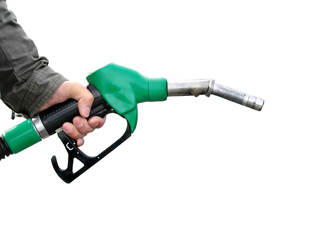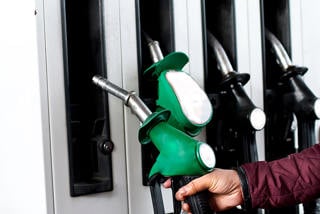The servicing and maintenance of fleet vehicles in respect to fast moving parts is unlikely to be immediately impacted by the war in Ukraine, but Fleet Assist is warning cost rises are on the horizon.
Fleet Assist, whose 5,200-strong garage network supports the servicing of over 850,000 company vehicles for its leasing and rental clients, says it is closely monitoring the supply chain in respect to parts availability through close communication with franchised and independent dealer networks and parts suppliers.
Currently, there appears to be little impact on the supply chain logistics for fast moving parts, however costs are set to increase which will translate into higher repair costs over the coming months, it says.
Vincent St Claire, Fleet Assist’s managing director, explained: “The main Ukrainian parts industry comprises vehicle wiring looms and gas production that supports the manufacture of semiconductors.
“This is going to cause issues with the supply of major components supplied to many vehicle manufacturers which will impact new vehicle production.”
St Claire says that Fleet Assist in regular dialogue with all elements of the supply chain to ensure we keep customers informed so they can consider any tactical changes required to mitigate a potential impact on drivers.
Russia bans vehicle exports
The warning from Fleet Assist comes after Russia hit back at western sanctions for invading Ukraine by imposing export bans on a series of products until the end of 2022.
As well as vehicles, the ban covers the exports of telecoms, medical, agricultural, and electrical equipment, as well as some forestry products such as timber.
Stellantis - the owner of Vauxhall, Peugeot and Citroen – has a plant in Kaluga, south-west of Moscow. It had been planning to export vans made in Russia to Europe and other parts of the world.
However, Stellantis told Fleet News there is no impact on UK customers as a result of the export ban.
It comes after a shortage of Mini parts from Ukraine led to a halt at Oxford's car factory being extended for two weeks.
Mini had previously said production at the Oxford plant would stop "for all shifts" from March 7-11, but this has now been extended to March 18, for all shifts.
A spokeswoman for the firm told Fleet News: "The war in Ukraine has a significant impact on the country’s automotive supply industry. Combined with the ongoing semiconductor bottlenecks, these supply limitations mean further adjustments to the Plant Oxford production schedule are required.
"Plant Oxford is now standing down production – Monday 7 March to Friday 18 March inclusive, for all shifts.
"We are assessing the situation and defining measures to secure production again as soon as possible. We are in constant communication with our associates and suppliers."
Diesel hits £1.70 a litre
Diesel has now topped the landmark average price of £1.70 a litre. It rose nearly 3p a litre on Thursday (March 10) which means it has gone up by 13p in a week.
Petrol is now above £1.61 for the first time ever having increased by 8p a litre in a week.
RAC fuel spokesman Simon Williams said: “Drivers will be wondering whether these record rises are ever going to stop.
"While prices may well continue to go up in the coming days, oil and wholesale fuel prices dropped for the second day in a row yesterday which should hopefully slow, or even halt, the cycle of escalating pump prices in the next week or so as retailers buy new stock at lower prices.
"There is, however, a concern they will be reluctant to lower their prices for fear of catching a cold if wholesale costs were to jump back up again."
The oil price drop, which was the biggest since the early stages of the pandemic, was caused by traders becoming less concerned about supply disruption.
The barrel price fell almost $9 on Thursday from $129.41 to $120.99 having already come down from nearly $138 on Tuesday.






















Login to comment
Comments
No comments have been made yet.